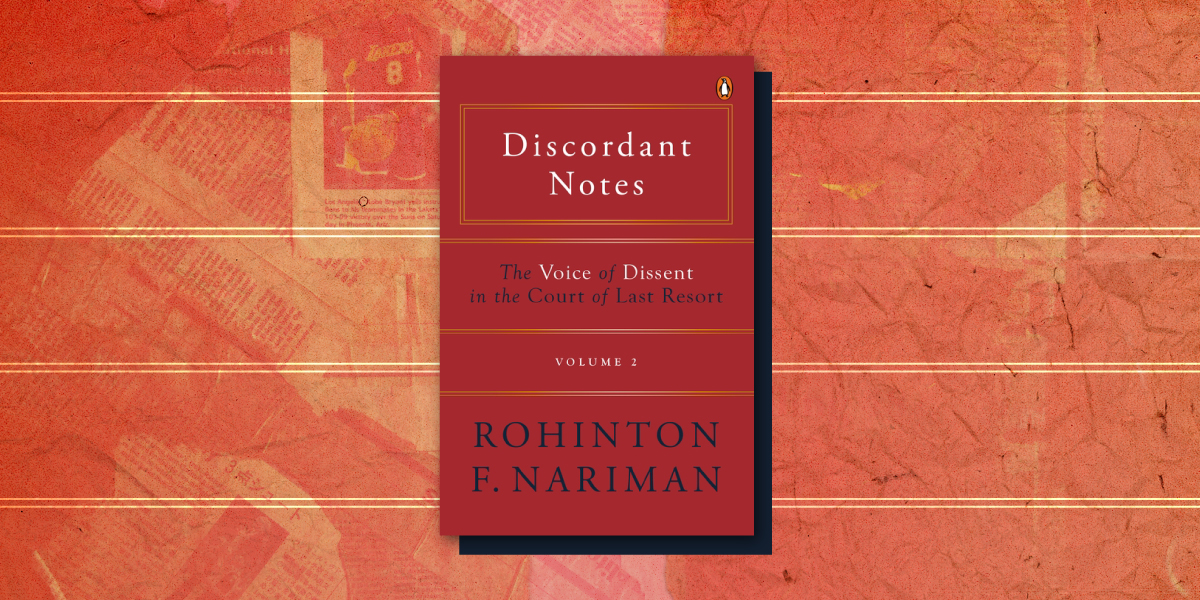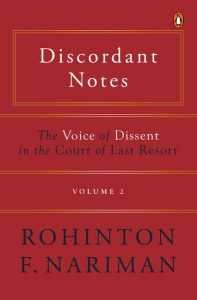Informed voting begins with enriched understanding! As we gear up for the 2024 Indian elections, we’ve handpicked seven audiobooks that every voter must have on their radar. From insightful analysis to historical narratives, these audiobooks are your go-to companions for understanding the issues and making your voice heard in the upcoming election season.
Ready to cast your vote?
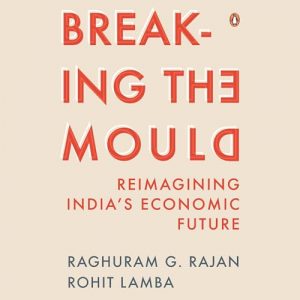
In Breaking the Mould, the authors explain how we can accelerate economic development by investing in our people’s human capital, expanding opportunities in high-skilled services and manufacturing centered on innovative new products, and making India a ferment of ideas and creativity. India’s democratic traditions will support this path, helped further by governance reforms, including strengthening our democratic institutions and greater decentralization.
The authors offer praise where the Indian establishment has been successful but are clear-eyed in pointing out its weaknesses. They urge India to break free from the shackles of the past and look to the possibilities of the future. Written with unusual candor, and packed with vivid examples and persuasive arguments, this is a book for anyone who has a stake in India’s future.
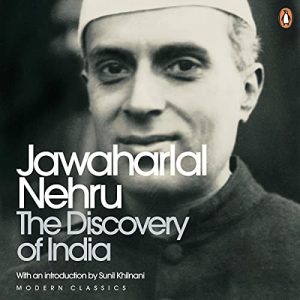
Jawaharlal Nehru wrote The Discovery of India during his imprisonment at Ahmednagar Fort for participating in the Quit India Movement (1942-1946). The book was written during Nehru’s four years of confinement to solitude in prison and is his way of paying an homage to his beloved country and its rich culture.
The work started from ancient history; Nehru wrote at length of Vedas, Upanishads, and textbooks on ancient time and ends during the British raj. The work is a broad view of Indian history, culture, and philosophy; the same can also be seen in the television series. The work is considered as one of the finest writings on Indian history. The television series Bharat Ek Khoj, which was released in 1988, was based on this work.
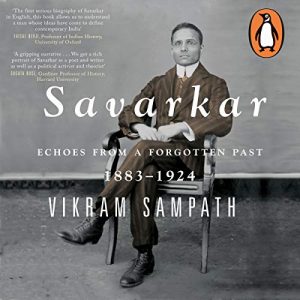
An alleged atheist and a staunch rationalist who opposed orthodox Hindu beliefs, encouraged inter-caste marriage and dining, and dismissed cow worship as mere superstition, Savarkar was, arguably, the most vocal political voice for the Hindu community through the entire course of India’s freedom struggle. From the heady days of revolution and generating international support for the cause of India’s freedom as a law student in London, Savarkar found himself arrested, unfairly tried for sedition, transported and incarcerated at the Cellular Jail, in the Andamans, for more than a decade, where he underwent unimaginable torture.
From being an optimistic advocate of Hindu-Muslim unity in his treatise on the 1857 War of Independence, what was it that transformed him in the Cellular Jail to a proponent of “Hindutva”, which viewed Muslims with suspicion?
Drawing from a vast range of original archival documents across India and abroad, this biography in two parts – the first focusing on the years leading up to his incarceration and eventual release from the Kalapani – puts Savarkar, his life, and his philosophy in a new perspective and looks at the man with all his achievements and failings.
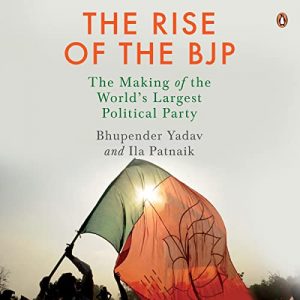
The Bharatiya Janata Party is an idea that was seeded into the minds of nationalist Jana Sangh leaders when they began to envision India after Independence. Much like the very core the freedom struggle was built on, they saw India as a demographically, culturally and historically cohesive and unified nation—as Bharat.
In this book, senior BJP leader and cabinet minister Bhupender Yadav and leading economist Ila Patnaik come together to trace the BJP’s journey from its humble roots, through ups and downs and to eventually getting 303 seats in Lok Sabha in 2019 and becoming the world’s largest political party. While focusing on the larger economics and political story, the book encapsulates many smaller, yet hugely significant stories of individuals and incidents, which brought the BJP to where it stands now.
For the first time ever, The Rise of the BJP, tells us the inside story of how one of the most powerful political parties makes decisions, implements ideas and executes policy. Meticulously researched and immensely compelling, the book shows us how the BJP fought competing ideologies, political assaults and catapulted to the centre stage of national politics.
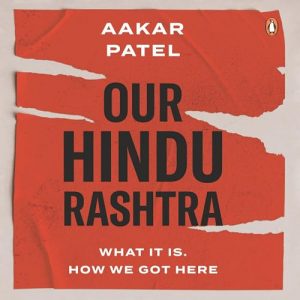
India has taken so sharp a turn in recent years that the very center has shifted considerably. What led to this swing? Is it possible to trace the path to this point? Is there a way back to the just, secular, inclusive vision of our Constitution-makers?
This country has long been an outlier in its South Asian neighborhood, with its inclusive Constitution and functioning democracy. The growth of Hindutva, in some sense, brings India in line with the other polities here. In Our Hindu Rashtra, writer and activist Aakar Patel peels back layer after layer of cause and effect through independent India’s history to understand how Hindutva came to gain such a hold on the country. He examines what it means for India that its laws and judiciary have been permeated by prejudice and bigotry, what the breach of fundamental rights portends in these circumstances, and what the all-round institutional collapse signifies for the future of Indians.
Most importantly, Patel asks and answers that most important of questions: What possibilities exist for a return? Thought-provoking and pulling no punches, this book is an essential listen for anyone who wishes to understand the nature of politics in India and, indeed, South Asia.
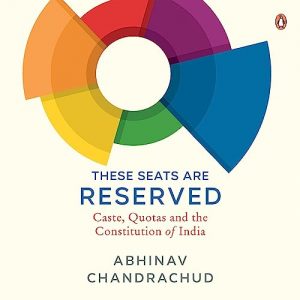
Reservation or affirmative action is a hugely controversial policy in India. While constitutionally mandated and with historians, political scientists and social activists convinced of its need, many resist it and consider it as compromising ‘merit’ and against the principle of equality of opportunity.
In These Seats Are Reserved, Abhinav traces the history and making of the reservation policy.
How were groups eligible for reservations identified and defined? How were the terms ‘depressed classes’ and ‘backward classes’ used in British India and how have they evolved into the constitutional concepts of ‘Scheduled Castes’, ‘Scheduled Tribes’, and ‘Other Backward Classes’ in the present day?
The book delves into the intellectual debates that took place on this matter in the Constituent Assembly, the Supreme Court and Parliament. Several contentious issues are examined dispassionately: are reservations an exception to the principle of equality of opportunity? Do quotas in government service undermine efficiency? Can ‘merit’ really be defined neutrally? What is the thinking behind the rule that no more than 50 per cent of the available seats or positions can be reserved?
Deeply researched and ably narrated, this volume is a compelling addition to every thinking individual’s library.
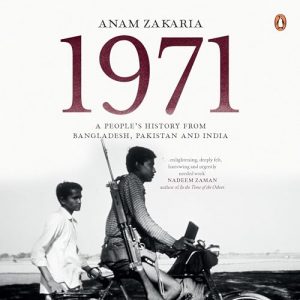
The year 1971 exists everywhere in Bangladesh—on its roads, in sculptures, in its museums and oral history projects, in its curriculum, in people’s homes and their stories, and in political discourse. It marks the birth of the nation, it’s liberation. More than 1000 miles away, in Pakistan too, 1971 marks a watershed moment, its memories sitting uncomfortably in public imagination. It is remembered as the ‘Fall of Dacca’, the dismemberment of Pakistan or the third Indo-Pak war. In India, 1971 represents something else—the story of humanitarian intervention, of triumph and valor that paved the way for India’s rise as a military power, the beginning of its journey to becoming a regional superpower.
Navigating the widely varied terrain that is 1971 across Pakistan, Bangladesh and India, Anam Zakaria sifts through three distinct state narratives, and studies the institutionalization of the memory of the year and its events. Through a personal journey, she juxtaposes state narratives with people’s history on the ground, bringing forth the nuanced experiences of those who lived through the war. Using intergenerational interviews, textbook analyses, visits to schools and travels to museums and sites commemorating 1971, Zakaria explores the ways in which 1971 is remembered and forgotten across countries, generations and communities.








